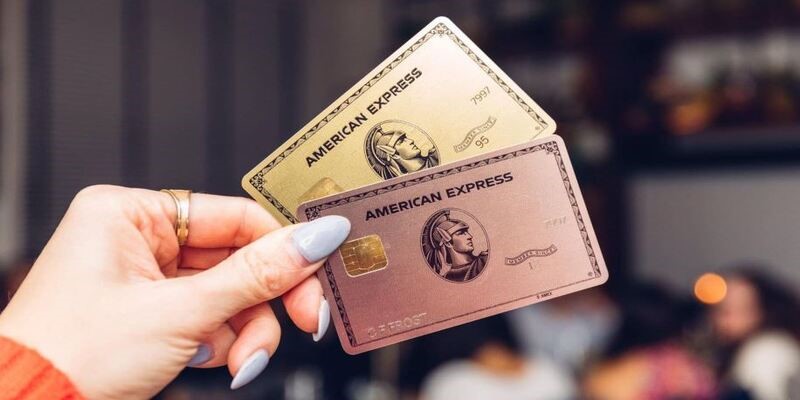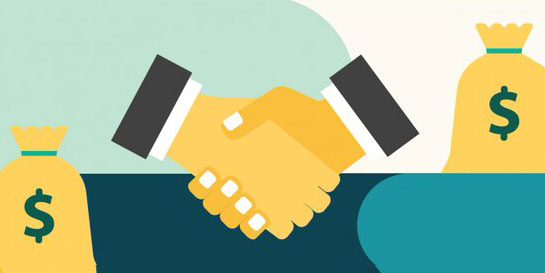Can You Trust Credit Unions with Your Money?
Dec 21, 2023 By Triston Martin
Market sluggishness and recessions can be frightening. Ask anyone who experienced the 2008 financial crisis. People frequently lose faith in financial institutions due to the uncertainty and dread that can nearly be unbearable.
Unfortunately, this can cause some people to take extreme measures, such as taking all of their funds (and occasionally their 401(k) plans) out and putting it somewhere they believe to be safer, like their mattress or sugar bowl.
Retain Your Funds And Provide Advantages
But it's not a good idea. Despite your fears of a recession, credit unions and banks are the safest places to put your money and offer advantages you won't get if you hide your money under your mattress.
Banks And Credit Unions Are Covered
A credit union or bank is the main justification for keeping your money there. While the FDIC covers all banks for $250,000, all credit unions are covered by the NCUA up to the same amount. Work with your financial institution if you have more than $250,000 in your accounts. You may protect all of your deposits in a variety of ways.
Banks And Credit Unions Both Pay Interest
Your money earns interest when you keep it in a savings account. A financial organization will pay you that interest if you maintain your money in their custody. Although the interest won't make you rich, a savings account will give you more money back than a mattress.
More People Now Make Payments Online
Most people in today's society no longer pay with cash or checks. In one survey, more than 50% of participants claimed to use a debit card to make purchases, while just 14% did so. The fact that person-to-person mobile payments are getting increasingly popular, particularly among young adults, is even more startling.
Whether you like it or not, cashless transactions are a reality. This, along with the ease with which bacteria and viruses may taint paper money, makes it clear why cashless transactions will become more common. However, a checking account is a requirement if you wish to use cashless transactions.
First, Alliance Credit Union can help you keep your money secure.
In addition to ensuring your money is secure in a conventional savings account when you join First Alliance Credit Union, you can also put your money to work. Consider investing in a Certificate of Deposit (CD) to earn more interest or place your funds in a money market savings account. Even better, by increasing your monthly savings, you can enter to win a gift by depositing money in a WINcentive savings account.
Are you prepared to see how a credit union differs?
Despite our best efforts, we cannot guarantee the completeness or accuracy of the information provided in the article, and under no circumstances should it be construed as legal advice. If you want to utilize the material in any manner, you must independently verify it. Furthermore, the content is not meant to represent First Alliance Credit Union's goods or services; please speak with a First Alliance Credit Union advisor for accurate and thorough information.
How Your Money Is Insured in Credit Unions vs Banks
The first thing to know and understand about banks and credit unions is that both offer up to a certain amount of insurance for your money on deposit. The government-backed Federal Deposit Insurance Corporation protects your money up to certain limits when it comes to accounts with traditional banks. On the other hand, money in credit union accounts is protected by the National Credit Union Share Insurance fund, which the American government backs.
Which is better, a bank or a credit union?
Both credit unions and banks can protect your money, but if you're unsure which type of institution you want to partner with, there are surely some things to consider.
Big banks, for instance, provide some pretty wonderful capabilities, such as feature-rich websites and popular mobile apps. A large bank may be the greatest option for getting everything you require in one location if you want to be able to bank on the move, deposit checks using your phone, and earn rewards on your credit cards.
Final Verdict
It's ultimately up to you to choose where you want to open a checking and savings account and submit loan applications. There is no one-size-fits-all right or wrong response, and every course of action has advantages and disadvantages.

10 Lucrative Side Hustle Ideas You Can Start in 2024

Are Debt Collectors Allowed to Message or Text People

What Is a Developed Economy?: An Extensive Overview

How to Hire a Retirement Advisor? What You Need To Know

Can You Trust Credit Unions with Your Money?

Understanding Non-Deductible IRAs: Essential Insights

Questions with Amex Digital Labs’ VP and head of partnerships

Is the Amex Gold Card Worth It? My Six-Month Review

Understanding Accretive: Definition and Real-world Examples in Business and Finance



